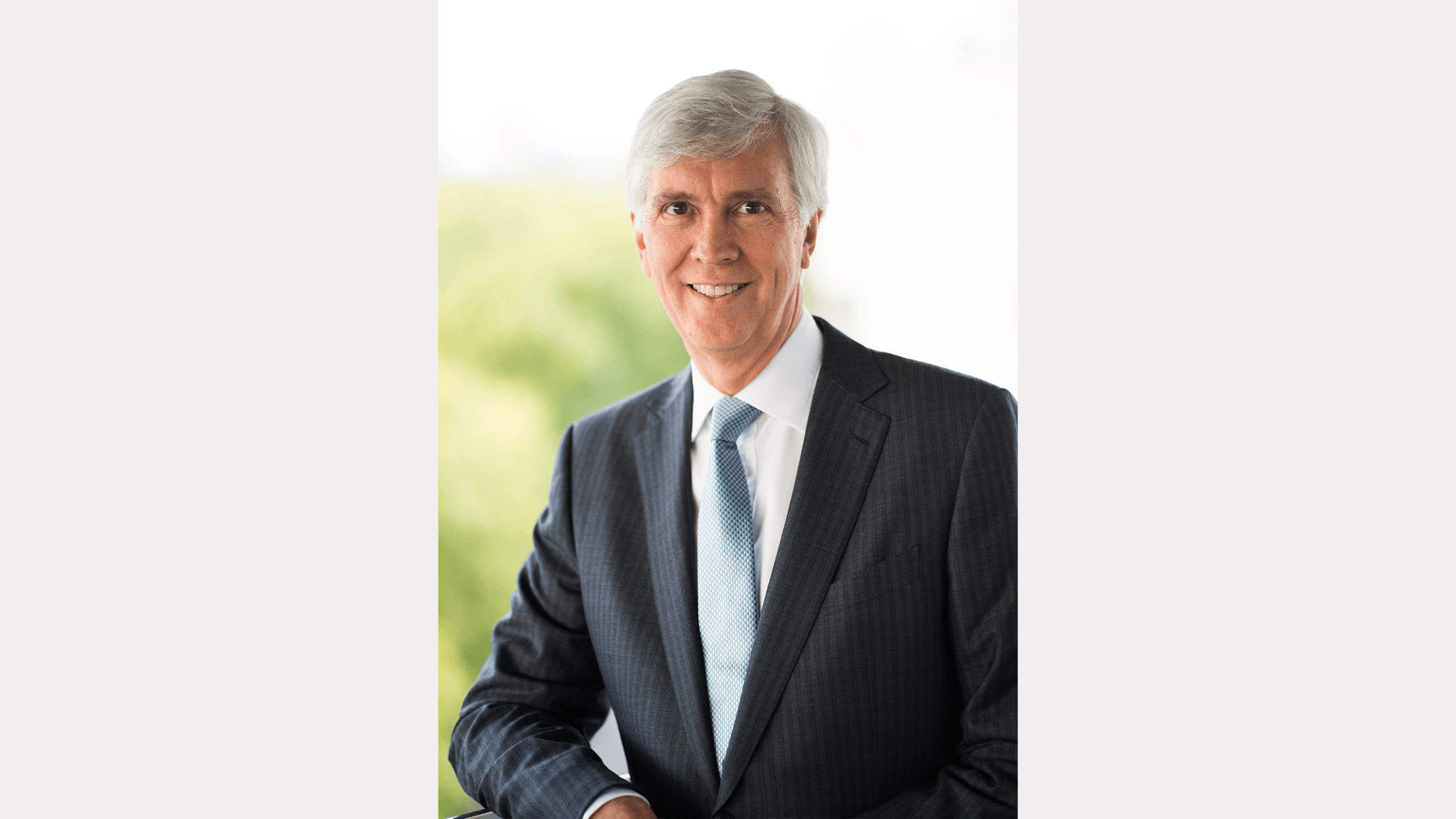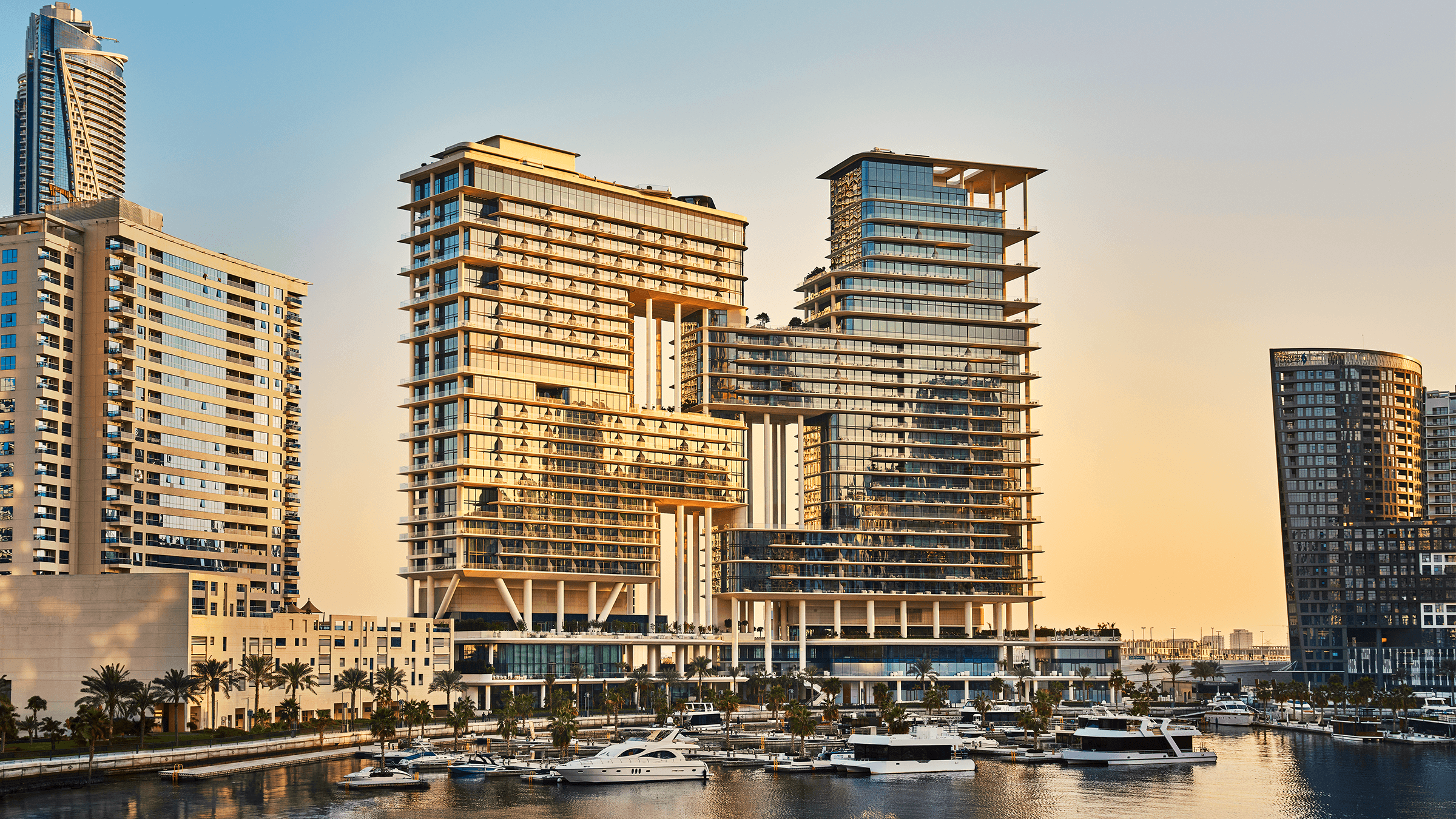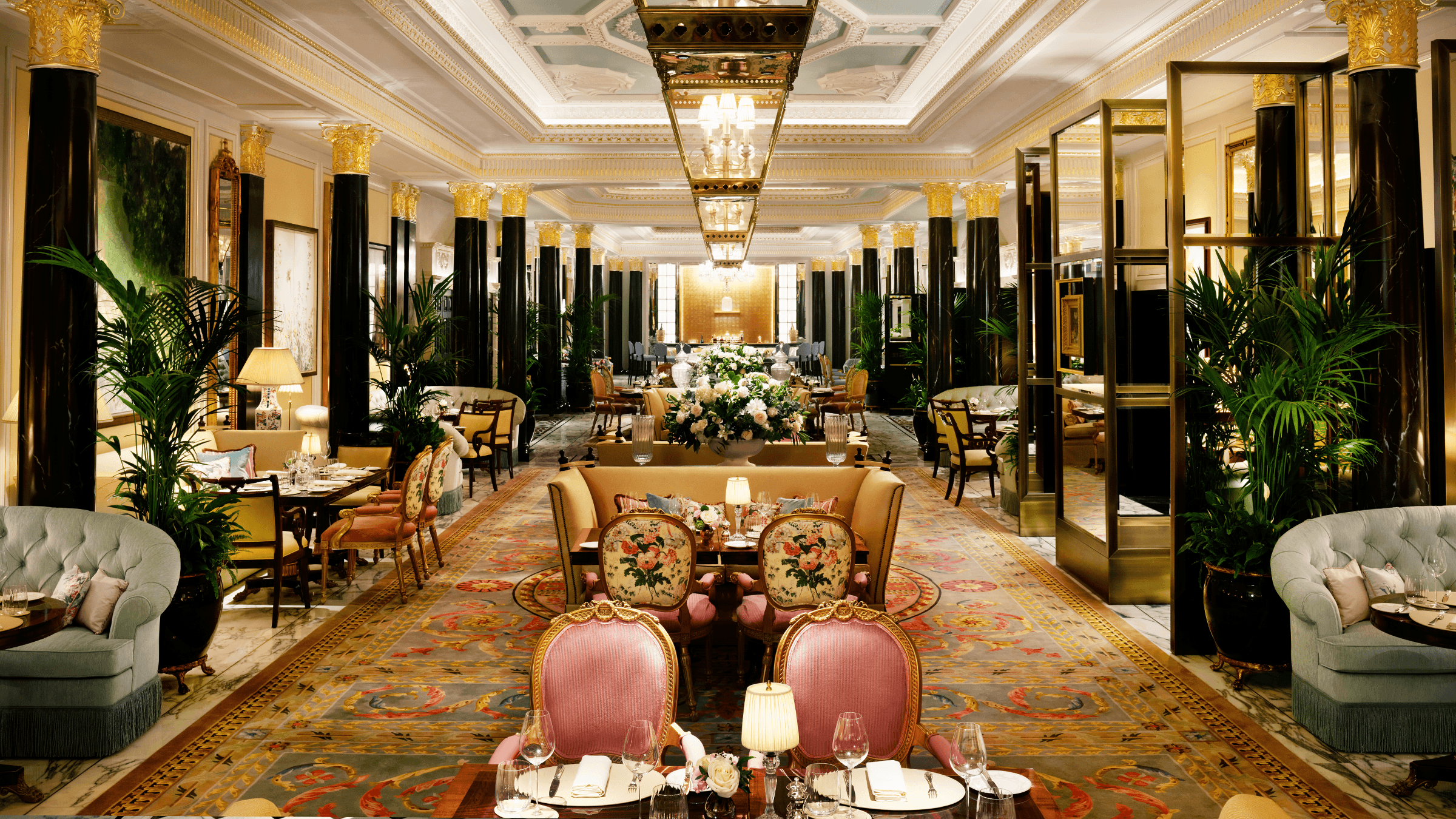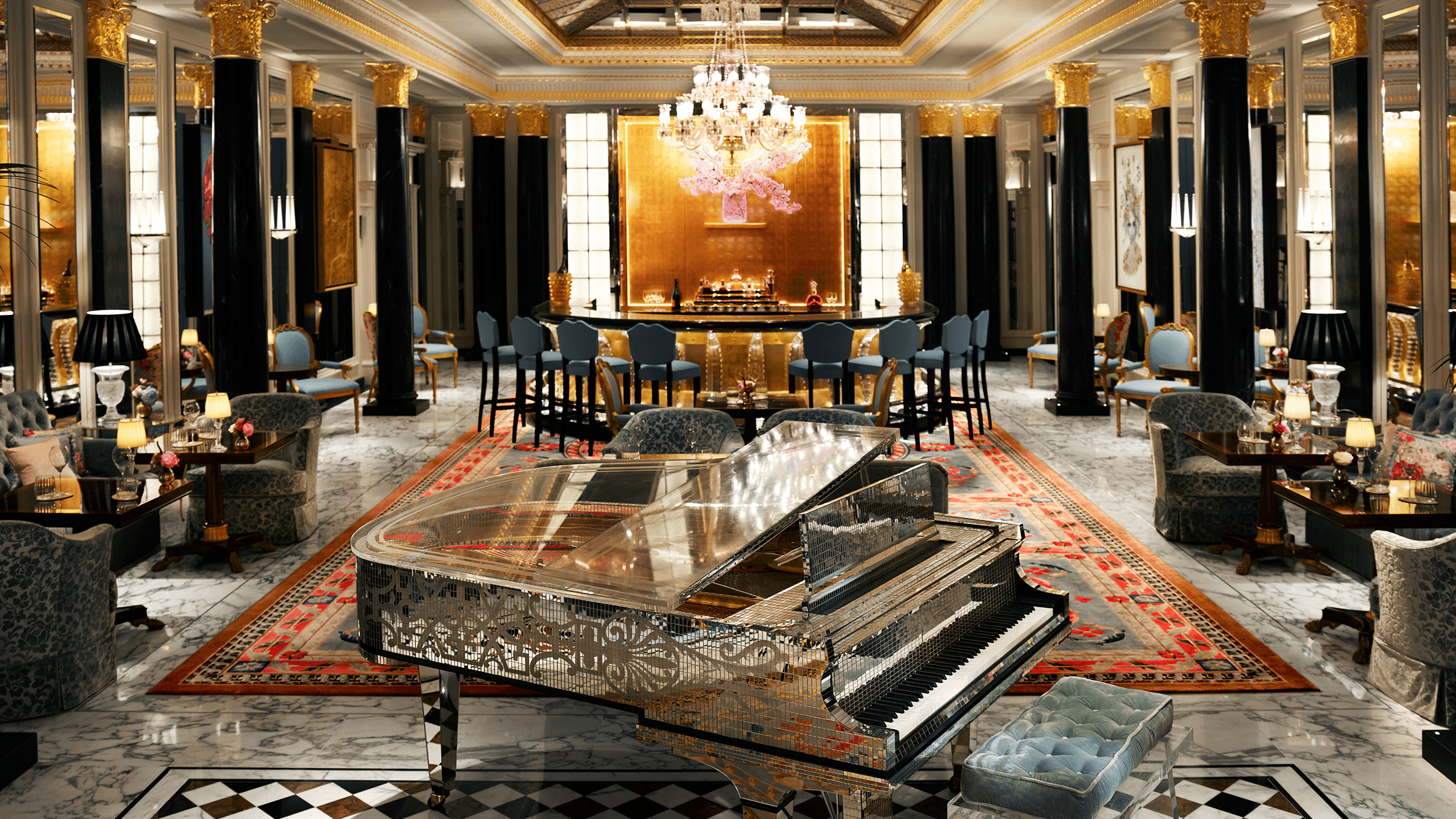I’m always fascinated by company origin stories: how the world’s most innovative brands are created, and how a founder’s vision is realised. The Dorchester Collection has become one of the hospitality sector’s most iconic hotel companies, with some of the most remarkable luxury hotels in the world including The Dorchester in London, Le Meurice and Hotel Plaza Athenee in Paris and The Beverly Hills Hotel and Hotel Bel Air in Los Angeles in its portfolio.
A few weeks ago, I had the privilege of catching up with Christopher Cowdray, the founder and now President of Dorchester Collection. At the end of last year, he transitioned from CEO to Company President, 15 years after he officially established The Dorchester Collection.
Our conversation started at the beginning. Christopher grew up in Zimbabwe, Rhodesia at the time, and after his national service originally trained as an accountant. When he was awarded a scholarship to study hospitality in London, he took it – a decision which kicked off a decades-long career in hotel management, spanning Saudi Arabia, Singapore, Australia, Oman and the UK. Rapidly progressing through the ranks of hotel leadership, in 1993, Christopher returned to London to take up the General Manager post at London’s Churchill Hotel, where he led a major rebrand and renovation, before a six-year stint as Managing Director at Claridge’s. And after Claridge’s changed hands, Christopher joined The Dorchester Hotel as its Managing Director.

At that point, the group consisted of five very individual iconic hotels – including The Dorchester Hotel. “They were all owned by the same owner but were run completely differently,” Christopher said, “there was no synergy, no joint vision.”
After just two years at the helm of The Dorchester Hotel, taking a chance, Christopher made an industry-changing decision to try and create a new, and iconic, hotel group. He wrote a handwritten note to the company’s Chairman setting out his plans, and handed it to him in the lobby of the hotel: “I just saw the opportunity,” he said, “I asked him to give me the chance to build a true hotel company, to establish an iconic brand, and to foster a management-first business that was more than just a head office and a group of hotels. I remember standing on the steps of The Dorchester with him, pointing down the road and saying ‘let’s turn that building into a hotel.’ That building is now 45 Park Lane, and one of our most successful hotels within the group.”
And with that, Dorchester Collection was born. The group now has ten hotels, in the UK, France, Italy, UAE, and the US within its portfolio. Systems and processes have been centralised (all bookings are processed in London, for example), and there’s strong cohesion in the identity and experience of each hotel.
Rapid growth has never been on the agenda. While some groups are focused on increasing footprint, Dorchester Collection takes a notably more considered approach to new openings, choosing only the best sites in the best destinations. The Lana, which opened this opened on Thursday in Dubai, is their first property in the Middle East: a striking 30-storey tower designed by the award-winning architects Foster + Partners. And currently under construction is a new hotel at the top of Japan’s highest building in Tokyo, due to open in 2028. The top priority is not to sacrifice or dilute the brand.
One of the things that impressed me most in my discussion with Christopher was how he had resisted the temptations of rapid growth over the period. “Growth has been slow because we had many opportunities to add hotels, but we’ve never managed to find those hotels in the right cities, in the right location, which could give the right returns.”

This sort of long-termist mindset is encouraged and enabled by Dorchester Collection’s owners: the Brunei Investment Agency. “We share the same philosophy,” said Christopher, “and the patient capital model has allowed us to continually reinvest to make sure that standards are right, and be there for our people when crisis hits.” During Covid, Dorchester Collection was able to guarantee jobs for its global team, rather than reactively slashing costs to protect shareholder returns like many of their listed peers. When guests were welcomed back post-lockdown, the group was therefore able to offer a full hospitality experience, not a simplified or streamlined version.
As Christopher summarises: “reputation comes first”. The group prides itself not only on impeccable customer service and best-in-class luxury, but also on building a brand which cuts through the noise of the international hotel scene. “We see our hotels as brands, as legends,” Christopher reflected. “So on our websites, for example, we’ve got the facts about the rooms and the restaurants as usual, but central to our messaging is the history of the buildings, the details of who has stayed there, and the part they’ve played in pivotal world events.” A quick glance at The Dorchester Hotel’s website, for example, tells me that the hotel counts General Eisenhower among its guests, who stayed while planning the Normandy Invasion during World War II.
“…central to our messaging is the history of the buildings, the details of who has stayed there, and the part they’ve played in pivotal world events.”
The group has also invested heavily in understanding its customer: individuals who can, in Christopher’s words, afford anything. What these guests want is not a lavish suite or a private jet, but a truly tailored experience. “We study our customers very closely, and spend a lot of time thinking about how we can communicate with them, and how we can provide them with a truly personalised service, in which nothing is too much trouble. Mostly, people just want to be recognised.”
Central to maintaining this reputation is Dorchester Collection’s people. Christopher’s philosophy is extremely simple: “it’s about looking after people, giving them opportunity, providing clear direction, and making quick decisions. Colleagues need to know what they are contributing, and need to feel valued. And lastly, you should never make a promise that you don’t believe you can keep”

In his nearly 15 years as CEO, Christopher tells me that approachability was central to his leadership style. “There’s no such thing as an ivory tower at Dorchester Collection,” he said, “I was always keen to be totally approachable as CEO. My door was always open – anyone from kitchen staff to a senior executive could have come and had a chat.” In large part as a result of this, Dorchester Collection’s people tend to stay on for a long time – which is very unusual for the hospitality sector, where high staff turnover is usually the norm. Today’s co-CEOs – Helen Smith and Eugenio Pirri – have been with the company for more than 30 years combined, and the company’s COO has been part of The Dorchester ecosystem since 1999.
For Christopher, clarity of vision is what underpins Dorchester Collection’s success. In his nearly twenty years leading the business, he’s been relentless in the aim to build a truly differentiated hotel group – with each site embodying its location, and offering luxury service and impeccable design that is established by the centre and executed by a team of loyal and long-serving general managers.
As he takes on a new, less hands-on role as president, I wondered what advice he would give to the next generation of hotel leaders? “I’d tell people to believe in themselves. I always had a very clear career path in mind: I wanted to be a general manager by 35, and to eventually build an international hotel company. I think you have to be quite relentless in your ambition. There are opportunities out there, but you have to work hard to get them.”
Quick-fire questions
Who has been a mentor to you? At the beginning of my career, I worked for a tobacco company TA Holdings, running a very small hotel. The Chairman of the company, Chris Freer, treated me with such respect, even as a very young person. I still remember him to this day. Today, my Chairman, who backed my original vision for the Dorchester Collection, remains a close mentor and support.
What is your favourite city? It would have to be between Sydney and London – two of the world’s most wonderful cities.
What is the best book you’ve read recently? The Red Hotel by Alan Phelps. It’s about the stories of journalists in Russia during the Second World War, and centres around the Metropol Hotel. I originally visited the USSR in 1974, and so could relate to some of the experiences.
Elliott.Goldstein@thembsgroup.co.uk | @TheMBSGroup
Working Women: Breaking Barriers, Powering Progress | New research from WiHTL & DiR
WiHTL & DiR are curating the most extensive piece of research into the career paths of working women across the Hospitality, Travel, Leisure and Retail sectors.
They’re looking for as many women as possible to take part in their Working Women: Breaking Barriers, Powering Progress research by completing this short survey.
Respondents will help WiHTL & DiR to better understand the opportunities and varied paths to success that women in our industry are facing, and build a suite of robust strategies and recommendations for improvement.
Take the survey here – it should take fewer than ten minutes!









